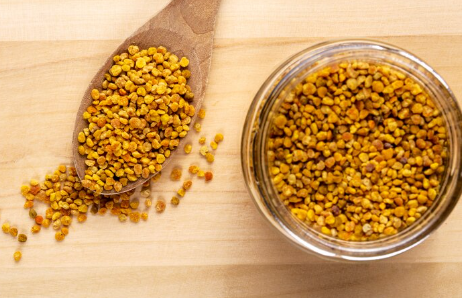Foenegreek: Health Benefits, Uses, Nutrition, and Side Effects of Fenugreek

Foenegreek, more commonly known as fenugreek, is an ancient medicinal plant that has been used for centuries in traditional medicine, cooking, and natural remedies. Belonging to the legume family, foenegreek seeds and leaves are highly valued for their unique flavor, nutritional properties, and healing benefits. Today, foenegreek is gaining global recognition not only as a spice in culinary traditions but also as a natural supplement for improving health conditions such as diabetes, digestion, and hormonal balance. In this article, we will explore in detail the history, nutritional value, health benefits, and possible side effects of foenegreek, providing you with a comprehensive understanding of why this plant has been cherished across cultures.
What is Foenegreek?
Foenegreek, scientifically known as Trigonella foenum-graecum, is a small green plant with yellowish-brown seeds that have a strong aroma and slightly bitter taste. It has been cultivated in regions of Asia, the Middle East, and the Mediterranean for thousands of years. The seeds of foenegreek are commonly used as a spice in Indian curries, Middle Eastern dishes, and herbal teas. Its leaves are also consumed as vegetables in various cuisines. Beyond its culinary importance, foenegreek has been a cornerstone in traditional Ayurvedic and Chinese medicine, where it is believed to boost energy, stimulate digestion, and balance hormones.
Nutritional Value of Foenegreek
One of the reasons foenegreek is highly regarded is due to its rich nutritional profile. The seeds are packed with protein, fiber, vitamins such as B6, iron, magnesium, and essential phytonutrients. They also contain compounds like diosgenin, which mimic estrogen and play a role in hormonal balance. The high fiber content of foenegreek supports digestion and helps regulate blood sugar levels, making it a popular choice for people managing diabetes. In addition, foenegreek provides essential amino acids that contribute to muscle development and overall energy levels. This nutritional richness explains why foenegreek is used both as food and as medicine in various parts of the world.
Health Benefits of Foenegreek
The health benefits of foenegreek are vast and supported by both traditional knowledge and modern research. One of the most well-known benefits is its ability to regulate blood sugar levels, making it helpful for individuals with type 2 diabetes. It also supports digestive health by reducing constipation and improving gut motility. For women, foenegreek has been used to enhance lactation and balance hormones during menstruation or menopause. Additionally, foenegreek is known to support weight loss by suppressing appetite and improving metabolism. Its anti-inflammatory properties also make it effective in managing conditions such as arthritis and chronic pain. With so many benefits, foenegreek continues to be a valuable natural remedy in modern wellness practices.
Foenegreek in Traditional Medicine
For centuries, foenegreek has been an important component of traditional medicine systems. In Ayurveda, it is used to treat digestive issues, respiratory problems, and reproductive health concerns. In Traditional Chinese Medicine (TCM), foenegreek is believed to strengthen the kidneys, improve vitality, and support overall energy balance. Ancient Egyptians reportedly used foenegreek seeds for embalming and as a treatment for burns. These historical uses highlight the long-standing belief in the plant’s healing power, and many of these applications continue to be studied in modern herbal medicine research.
Culinary Uses of Foenegreek
Beyond medicine, foenegreek has an important place in global cuisines. Its seeds, when roasted and ground, add a slightly sweet, nutty, and bitter flavor that enhances curries, pickles, and spice blends such as garam masala. Foenegreek leaves, both fresh and dried (known as “kasuri methi”), are used to add aroma and taste to breads, stews, and soups. In Middle Eastern and Mediterranean cuisines, foenegreek is often incorporated into sauces, teas, and herbal mixtures. Because of its distinctive taste and nutritional value, foenegreek is widely recognized as both a spice and a medicinal herb.
Possible Side Effects of Foenegreek
Although foenegreek offers many benefits, it should be consumed with caution. Some people may experience mild side effects such as bloating, diarrhea, or allergic reactions. Pregnant women are advised to avoid excessive foenegreek intake, as it may stimulate uterine contractions. People with thyroid problems or those taking blood-thinning medications should consult a doctor before using foenegreek supplements. Additionally, the strong aroma of foenegreek may cause a maple syrup-like odor in urine and sweat, which is harmless but surprising for some users. As with all herbs and supplements, moderation and professional advice are key.
Conclusion: Why Foenegreek Remains a Timeless Herbal Remedy
In conclusion, foenegreek is a remarkable plant that bridges the gap between food and medicine. With its rich nutritional profile, proven health benefits, and diverse culinary uses, it has earned its place as one of the most valued herbal remedies across cultures. From managing blood sugar and improving digestion to balancing hormones and supporting overall wellness, foenegreek continues to play a vital role in modern natural health. While it should be consumed responsibly to avoid side effects, its potential as a natural aid makes it a timeless choice for people seeking holistic health solutions.
Frequently Asked Questions (FAQ) about Foenegreek
Q1: What is foenegreek?
Foenegreek, also known as fenugreek, is a plant whose seeds and leaves are used for both culinary and medicinal purposes.
Q2: What are the main health benefits of foenegreek?
It helps regulate blood sugar, supports digestion, improves lactation, balances hormones, and has anti-inflammatory properties.
Q3: Can foenegreek help with weight loss?
Yes. The high fiber content can promote satiety, reduce appetite, and improve metabolism, supporting weight management.
Q4: How is foenegreek used in cooking?
Its seeds are used in spice blends and curries, while the leaves are used fresh or dried to enhance soups, breads, and stews.
Q5: Are there any side effects of foenegreek?
Possible side effects include bloating, mild digestive discomfort, allergic reactions, and a maple syrup-like body odor.
Q6: Is foenegreek safe for pregnant women?
It should be avoided in high amounts during pregnancy as it may cause uterine contractions. Always consult a doctor before use.